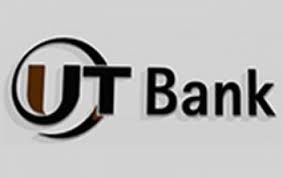 Library Photo
Library Photo
Shareholders of UT Bank have asked the board and management to raise an additional GH¢100million capital in preference shares to streamline the bank’s capital base to support growth and operations.
The bank’s performance for 2014 has been described by the board chairman as poor, with the share price dropping from ¢0.45at the beginning of last year to GH¢0.25 to close the year.
According to UT bank, tough economic conditions affected the financial performance of its customers, which are mainly SMEs, and therefore impacted the bank’s performance negatively.
Under these conditions, the board has taken a decision to consider other options of raising capital, including the issuance of Preference Shares. This will be done simultaneously with the Rights Issue/Private Placement.
“We believe that raising capital through issuance of ordinary shares alone, at current share price level, will be disadvantageous to our existing shareholders who have stood by us all these years,” said Martyn Mensah, a non-executive director of the bank.
Mr. Mensah was speaking on behalf of the board chairman, Joseph Nsonamoah, and also explained that the Preference Shares will be non-cumulative, non-redeemable and carry no voting rights except on matters regarding dividend payment and a change in auditors.
Speaking at the annual general meeting, the chief executive officer Prince Kofi Amoabeng persuaded shareholders to back the decision of going back to the market and borrowing.
“Our profits are marginal and nothing to write home about, so it is important we raise these preference shares.”
Due to the capital raise and investment required to improve profitability, the board decided not to pay out any dividend to shareholders.
“The fact that we didn’t pay dividends doesn’t please the shareholders, but businesses go through up and down cycles and it is not the right time to ask them to cough up more monies. Therefore we decided to go the route of preference shares for now, and when there is an upturn they will come back to enjoy the fruit they have planted,” he told B&FT.
According to Prince Amoabeng, the move further shows “the expression of confidence in management’s decision to go the way of preference shares”.
However, he was cautious with regard to long-term success, maintaining that it is dependent on how well the macro-environment performs. “At the moment it is really not good for businesses, and the informal sector, with all the standoffs, has been tough.”
Currently, businesses in the country are battling with erratic power supply, high interest rates and collapse of the cedi.
In spite of the challenges facing UT, Amoabeng reckons the bank will have to continue lending to businesses. “We have to restructure our operations, review ourselves by making sure that when we lend the monies are paid back.”
He also hinted that due to the difficulties certain sectors may be sidelined, explaining: “If those sectors are constantly showing non-performance and non-payment, then we can’t risk the investor’s money to fund those things; so we have to look at the industries -- the ones that we can contribute to and monitor effectively -- and lend to them.
“We will look at the whole issue of lending in 48hours to some sectors; we can still lend but with some sectors we will have to take our time to do the loan, and for others we may have to probably do without them for now.”
Mr. Amoabeng further disclosed that the bank intends to look at its own internal systems: “We can’t say that the economy is going to turn around and things will be smooth. If the economy is not turning around, or if we should come into this situation again, will UT have the structures to withstand those shocks so that shareholders can have the benefits?”
The bank’s interest income increased from GH¢189m to GH¢226m, representing a 20% growth. Interest income from loans and advances remained the key contributor to this line, although it recorded a rise in investment income due to the general rise in Treasury bill rates.
Its interest expense on the other hand increased by 33% to GH¢154million, and eroded much of the revenue earned.
In 2015 the plan of action, UT officials say, is to recover a significant portion of its non-performing loans; and improve the ratio of cheap to expensive deposits with an eye to achieving a 70:30 ratio, as well as continue to develop its human capital and focus on growth for sustained profitability.